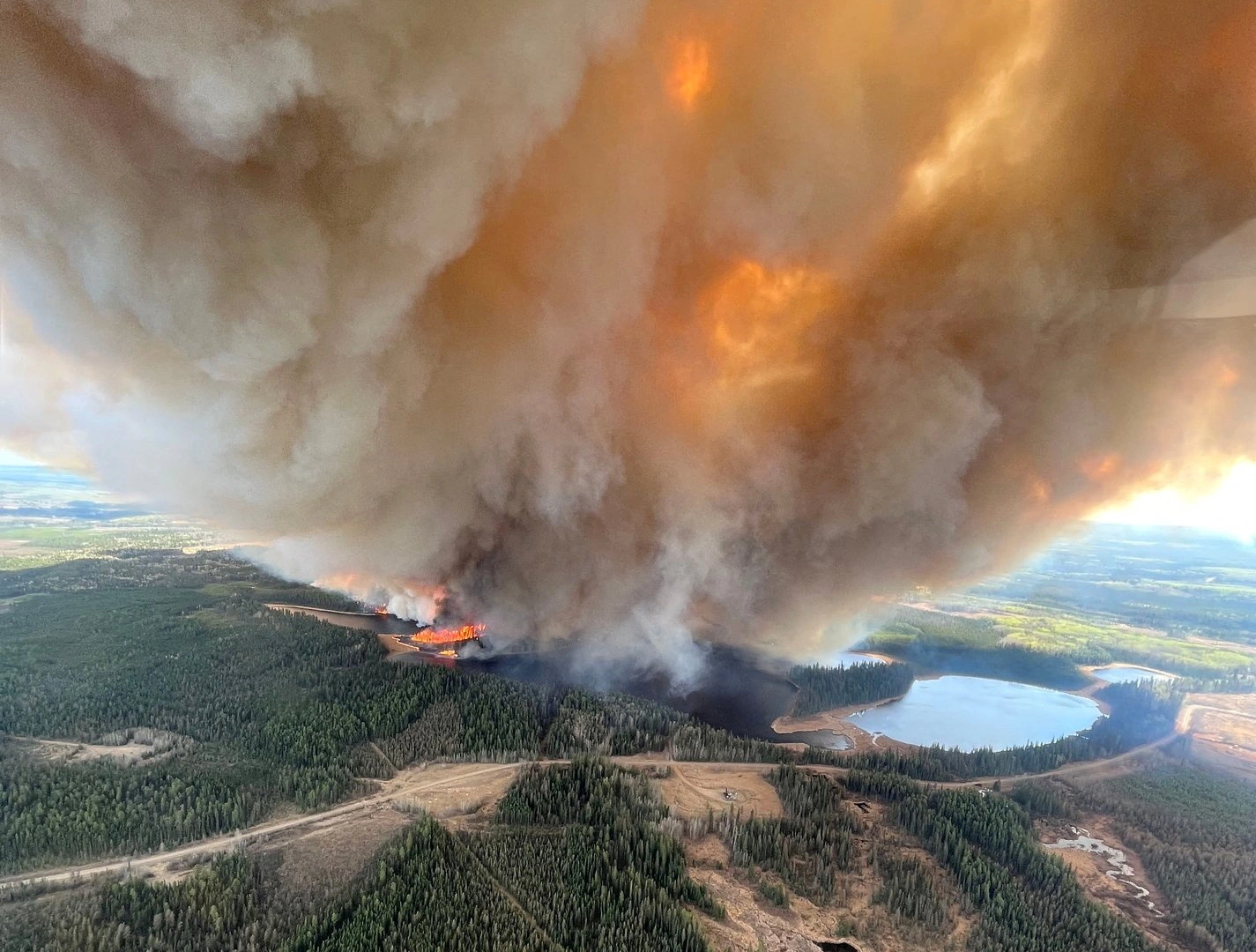Wildfire Crisis in Canada: 2023 Shaping Up to be a Devastating Year as Fires Rage Across the Country, Fueled by Climate Change

In a recent update from the Canadian Interagency Forest Fire Centre, alarming data reveals that a staggering 2,258 wildfires have ravaged Canada this year alone. Among them, 426 wildfires are currently active, with a concerning 240 classified as out of control. The scale of destruction is already immense, with approximately 3.6 hectares of land consumed by the relentless flames. Climate change is believed to be a significant contributing factor, making 2023 an exceptionally severe year for wildfires in Canada.
The fires have not spared any corner of the country, spreading across nine provinces and territories, from the western province of Alberta to the eastern province of Quebec. The impact is already extensive, prompting Natural Resources Canada to issue a statement acknowledging the severity of the situation: “Across the country, several provinces and territories are experiencing a severe wildfire season, and the effects are already widespread.”
Typically, a typical wildfire season during the summer months in Canada witnesses just over 1,600 such events, covering an estimated 250,000 hectares. However, according to a forecast presented by the government, current projections for June indicate the potential for sustained, above-average fire activity throughout the entire 2023 wildland fire season. The modeling paints a grim picture, warning that the majority of Canada faces the ongoing threat of wildfires.
Canadian Prime Minister Justin Trudeau addressed the worsening situation during a press conference in Ottawa, emphasizing the role of climate change in exacerbating the intensity and geographic reach of the wildfires. “Year after year, with climate change, we’re seeing more and more intense wildfires, and in places where they don’t normally happen,” he stated.
The impact on Canadian citizens has been significant, with over 120,000 individuals displaced by the wildfires and an additional 25,000-plus under evacuation orders thus far. While this may not yet be Canada’s most severe fire season, officials express concern that if the current trajectory continues, it could surpass previous records. Natural Resources Minister Jonathan Wilkinson commented during a briefing, “While this is not yet Canada’s most severe fire season, if this trajectory continues, it very well could be.” Minister of Emergency Preparedness Bill Blair echoed these sentiments, describing the images captured during this season as some of the most severe ever witnessed in Canada.
Prime Minister Trudeau further stressed the urgency of the situation, stating, “Our modeling shows this may be an especially severe wildfire season throughout the summer.” However, he assured the public that emergency preparedness measures are in place to confront the challenges posed by this unusually severe phenomenon, which started as early as May. Contingency plans also include greater assistance from the Canadian Armed Forces to combat the escalating crisis.
As Canada grapples with this unprecedented wildfire crisis, efforts are intensifying to mitigate the damage and provide support to affected communities. The fight against climate change and its devastating consequences on wildfires has never been more crucial, as the nation rallies together to protect lives, homes, and the invaluable natural resources at stake.




